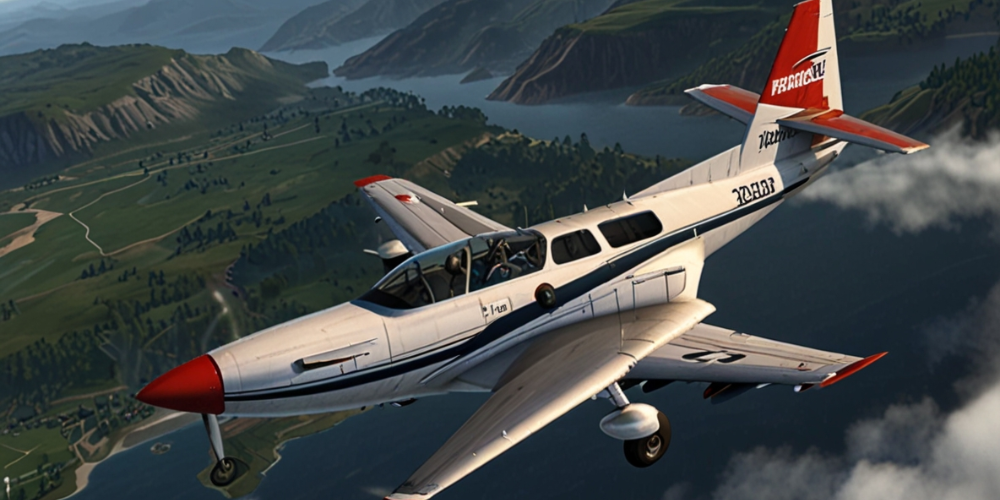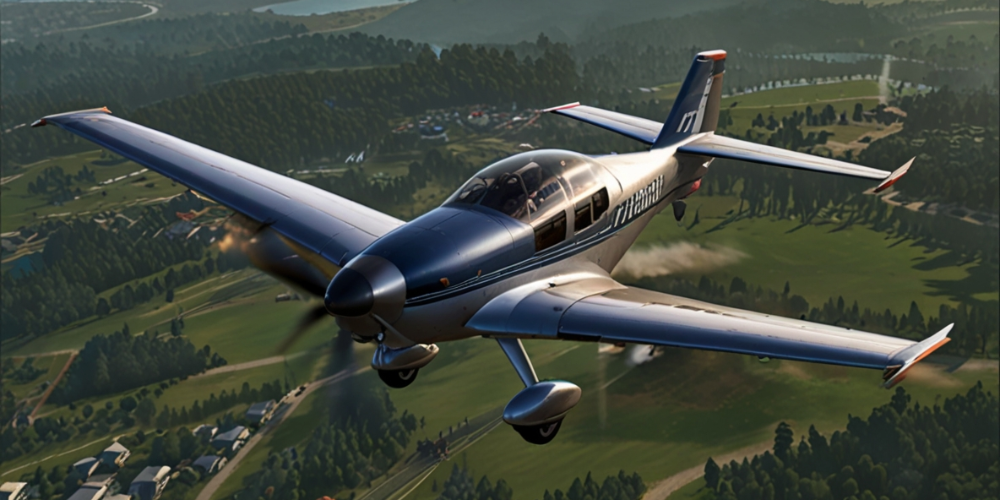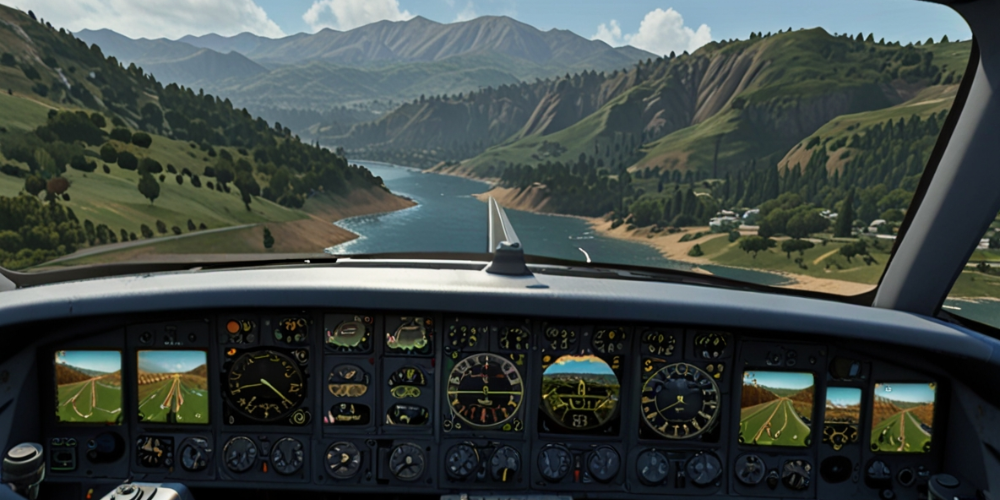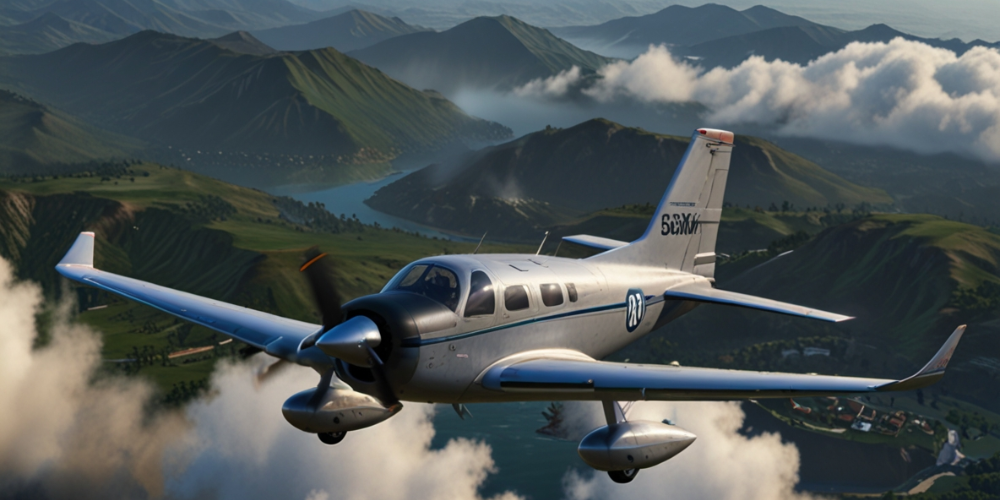
Before embarking on the journey to build a gaming PC tailored for the 'Microsoft Flight Simulator,' understanding the game's requirements is paramount. This flight simulator is renowned for its stunning graphics and realistic physics, placing high demands on both hardware and software. The minimum requirements dictate the baseline performance, while the recommended specs offer an ideal experience, particularly for those who want to run the game at higher settings or with add-ons.
Processor Power: Selecting the Right CPU
The central processing unit (CPU) acts as the brain of your gaming PC, and for the 'Microsoft Flight Simulator,' it plays a crucial role. While the game can run on a lower-end processor, opting for a modern multi-core CPU enhances performance significantly. A high-performance CPU will handle the complex calculations demanded by the game's physics engine and AI. Ideally, consider CPUs from AMD Ryzen or Intel Core series that support high clock speeds and multiple threads for optimal performance.
Graphics Card: The Heart of Visual Performance
A graphics card (GPU) is fundamental when striving for breathtaking visuals in 'Microsoft Flight Simulator.' A powerful GPU will manage to render complex landscapes, realistic clouds, and intricate aircraft designs. Current-gen cards from NVIDIA's RTX series or AMD Radeon RX series provide ample power, with ray tracing and AI capabilities that elevate the graphics quality. It’s advisable to avoid lower-tier cards as they may struggle to maintain smooth framerates at higher settings.
Memory Matters: Choosing the Ideal RAM

Random Access Memory (RAM) is essential for multitasking and smooth gameplay. 'Microsoft Flight Simulator,' with its vast environments and substantial data processing requirements, benefits from a generous amount of RAM. Aim for a minimum of 16 GB, understanding that 32 GB can provide an even more seamless experience, especially if you run additional applications simultaneously or use mods.
Storage Solutions: SSD vs. HDD
In terms of speed, Solid State Drives (SSD) outperform conventional Hard Disk Drives (HDD) by a considerable margin. An SSD minimizes load times and enhances system responsiveness, which is critical in a game that features expansive open-world scenarios. Consider an NVMe SSD for optimal speeds, while a secondary HDD can be used to store other files and applications without compromising the main gaming experience.
Motherboard Selection: Find the Perfect Match
The motherboard serves as the backbone of your gaming PC, linking all components. Choose a motherboard that offers compatibility with your CPU and has adequate slots for future upgrades, such as extra RAM or additional GPUs. Look for features like USB 3.0 ports, M.2 slots for SSDs, and robust VRMs for efficient power delivery. Whether you choose an ATX, Micro-ATX, or Mini-ITX form factor will depend on your case size preference.
Cooling Systems: Maintaining Optimal Temperatures

High-performance CPUs and GPUs generate substantial heat, making an effective cooling system essential for longevity and performance stability. When selecting between air cooling and liquid cooling solutions, consider your budget and expertise. High-quality air coolers can be highly effective, while liquid cooling provides a sleek aesthetic and efficient performance in compact builds. Proper airflow within the case is also crucial for maintaining optimal temperatures.
Case Selection: Size and Design Considerations
The enclosure encompasses all essential parts while also contributing notably to the visual appeal and airflow dynamics. A mid or full-tower case typically allows for better cooling and more expandability. Pay attention to cable management options and fan placement capabilities to ensure a neat and organized build. The visual appeal, with RGB lighting and tempered glass panels, can also enhance your gaming setup’s atmosphere.
Power Supply: Ensuring Stable Power Delivery
The power supply unit (PSU) is crucial for providing stable power to all components in your PC. A poorly chosen PSU can lead to system instability and potential damage to components. Select a high-quality PSU from reputable brands with an appropriate wattage rating, typically 80 Plus Gold certified for efficiency. It’s advisable to have a buffer above your total component power consumption to accommodate future upgrades.
Monitors: Elevating Your Visual Experience

Your monitor also plays a significant role in how you experience the 'Microsoft Flight Simulator.' A monitor with a high refresh rate and resolution will enhance visual fidelity. Consider investing in a 1440p or 4K monitor for an immersive experience. Features like Adaptive Sync can minimize screen tearing and ensure a smooth gameplay experience. Ultra-wide monitors can also offer a unique perspective for flight simulation.
Input Devices: Controllers and Peripherals
While a traditional keyboard and mouse are essentials for any gaming setup, a flight simulator demands more specialized controls for a truly immersive experience. Joysticks, yokes, and throttle quadrants can significantly enhance control and realism in 'Microsoft Flight Simulator.' Advancements in force feedback technology allow for even greater responsiveness and realism when piloting different aircraft.
Audio: Creating an Immersive Sound Environment
Sound design plays a significant role in creating an immersive experience. High-quality speakers or a good pair of headphones can bring the vibrant sounds of the cockpit and environment to life. Surround sound systems or headphones can help players better perceive spatial audio cues, adding to the realism when flying through different weather conditions or landscapes.
Software and Drivers: Optimizing Your System

Once your system is built, optimizing the software environment ensures everything runs smoothly. Installing the latest drivers for your GPU, motherboard, and peripheral devices maximizes performance and stability. Additionally, keep your operating system updated, and consider using performance-enhancing software to manage system resources effectively during gaming sessions.
Future Upgrades: Planning for Longevity
When building a gaming PC, it’s wise to consider future upgrades. Technology evolves rapidly, and a build designed for 'Microsoft Flight Simulator' should allow for enhancements over time. Choosing modular components, such as a motherboard with extra RAM slots or a case capable of housing larger GPUs, can support future advancements in gaming specifications without the need for a complete overhaul.
Community Resources: Learning from Others
The gaming community offers invaluable resources for enthusiasts building their first gaming PC. Platforms such as forums, YouTube channels, and social media groups provide insights from others who have built systems specifically for 'Microsoft Flight Simulator.' Engaging with the community can yield tips on optimizing performance, troubleshooting issues, or simply gaining inspiration for your build.